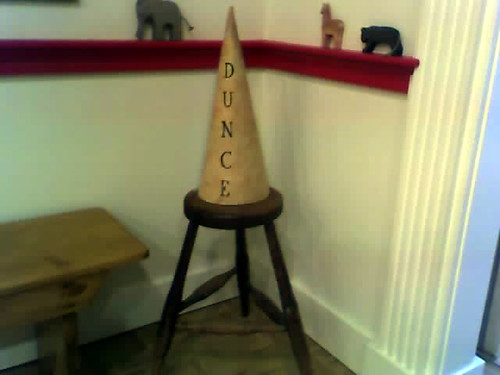We had it coming, I suppose; it's in the air but you don't immediately recognize it: neurosophy. I would describe it as a slightly unhinged way of pontificating around neurological damage, assuredly the most upsetting type of damage we can encounter as humans. In order to soften the neurological blow, the neurosophist drags neurological concepts into a context that has nothing to do with neurology. You might say that in this activity neurons are taken to church, where they have no business...
more
[ The book under review is Jill Bolte Taylor's My Stroke of Insight, in which she (Keizer writes) "describes what she went through when she was struck by a severe hemorrhage in the left hemisphere of her brain. (You can listen to her vivid description of the event on YouTube under her name)." ]
Here it is at TED, instead.
The (shall we say, "unfortunately"?) devasting conclusion of this review reads:
Taylor begins her book as a moving account of a harrowing experience.
She writes convincingly about the acute stages of cerebral hemorrhage.
I was impressed by the courage and perseverance she has shown in the
eight years since her stroke, during which she has gradually found
herself again. As such, her book makes you stop and wonder about the
fate of stroke victims.
Her shaky epistemology would
not matter so much, were it not for the fact that she uses it as a
launching pad from which she veers off into the higher spheres of
destiny-control and even world improvement. Her book is ultimately a
denial of the horror that lies embedded in the fact that we are our
brains.
Perhaps I wouldn't have bothered to blog this without that last phrase:
the horror that lies embedded in the fact that we are our
brains


